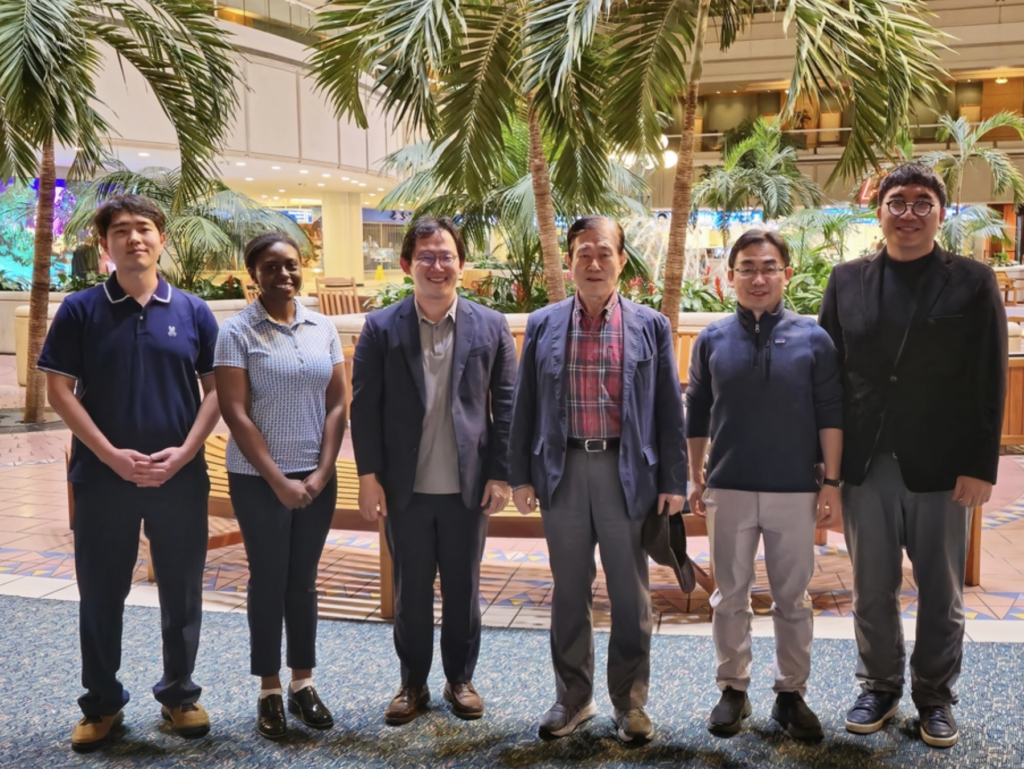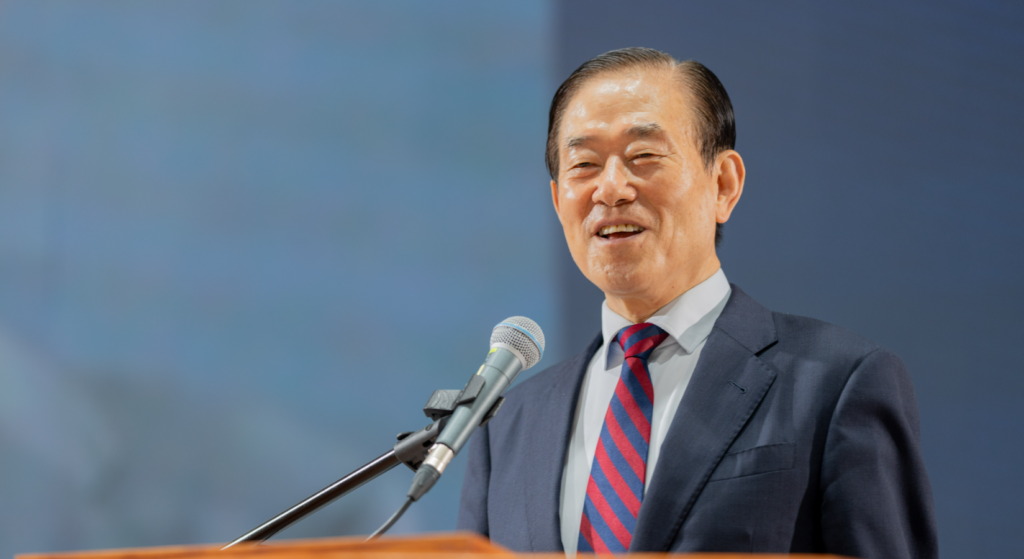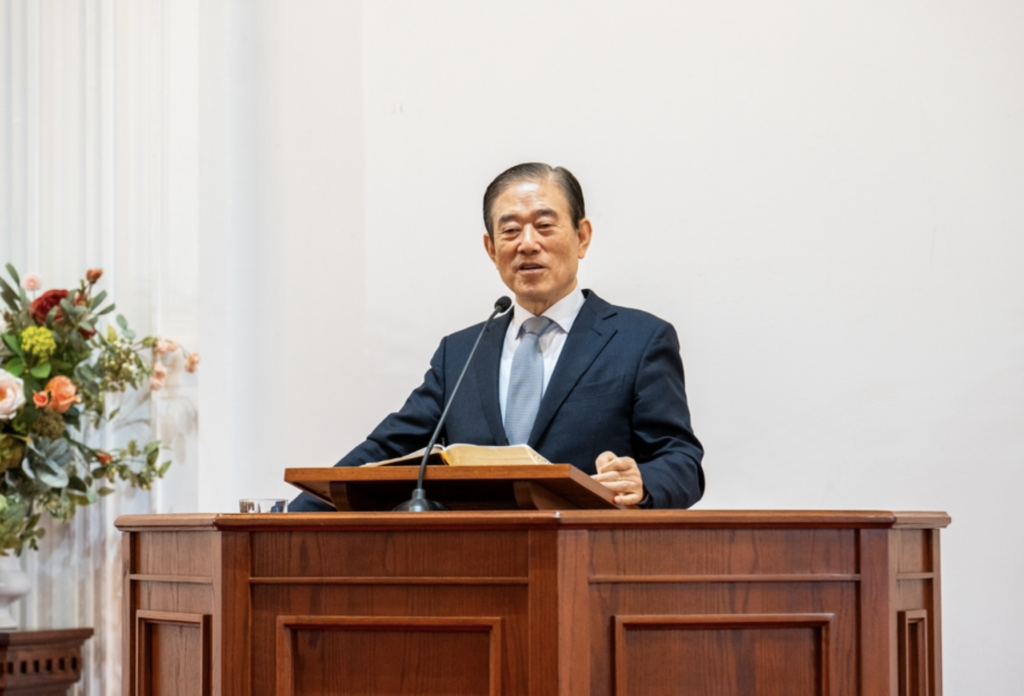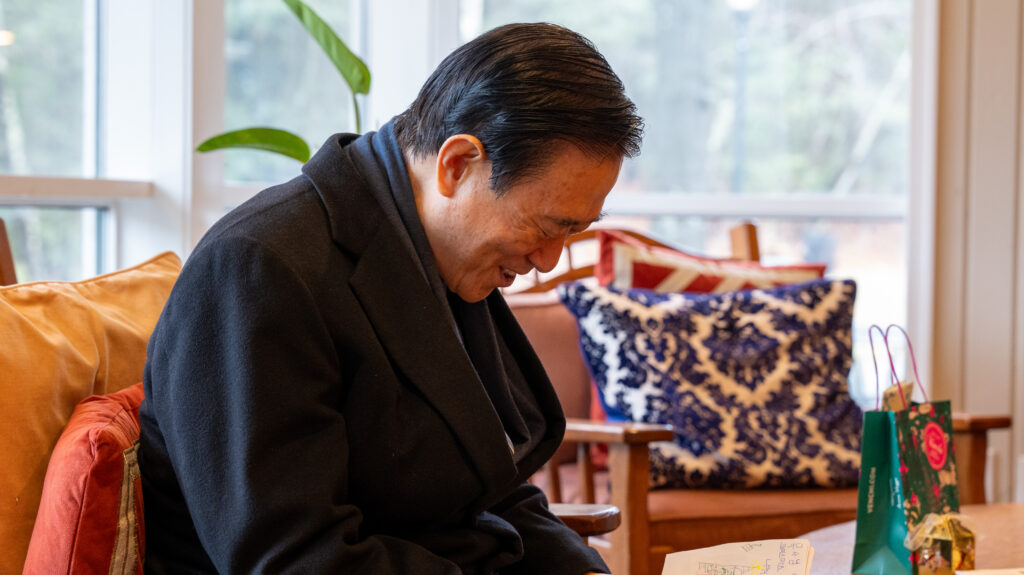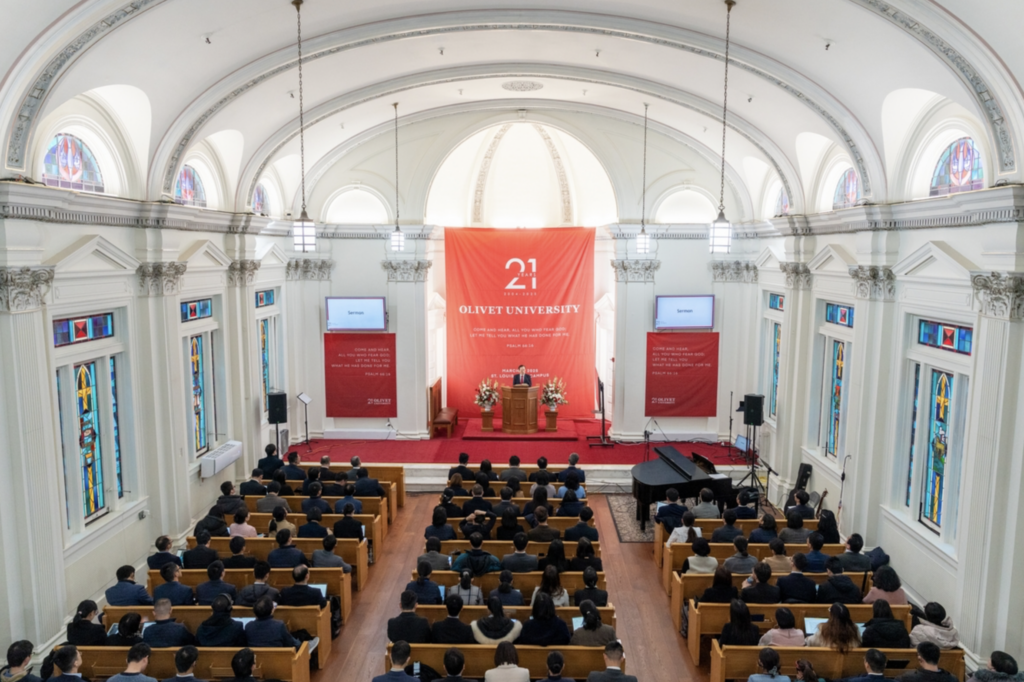
1. The Way of the Cross and Atonement
When we read the Gospels, we see that the path Jesus Christ took to the cross cannot be understood merely as a means of suffering or execution. Rather, that path was God’s redemptive plan, in which Jesus willingly offered Himself as a “sacrificial lamb” to rescue humanity from the power of sin and death, and it was a path of love in which He personally bore all curses and sins. At this very point, Pastor David Jang defines Jesus’ journey to Golgotha under the weight of the cross as “the perfect atonement on our behalf” and emphasizes that this itself serves as a mirror, reflecting what the true path of a saint ought to be.
Crucifixion was, from the outset, one of the most severe forms of punishment in the Roman Empire—reserved for political rebels, slaves, or those guilty of heinous crimes. It was a symbol of “horror” and “shame.” Yet the fact that Jesus Christ, the Son of God, submitted Himself to this extreme penalty reveals a divine love so mysterious it transcends human comprehension. According to the Gospels, Jesus’ journey to the cross was not a passive sacrifice whereby He was unjustly condemned after an unfair trial. On the contrary, He actively took on people’s sins, intending thereby to grant freedom and liberation to all sinners whom the Law condemns.
In Matthew 5:39-44, Jesus proclaims the revolutionary teaching, “Do not resist an evil person” and “Love your enemies.” These commands overturn humanity’s instinctive urge for retaliation, rejecting the world’s way of “an eye for an eye” or “enemy for enemy,” and instead offer God’s kingdom way of breaking the cycle of hatred and anger. Jesus Himself demonstrated the very essence of “atonement” and “substitutionary sacrifice” on the cross. By shouldering the curse and sin of everyone to the end, He extinguished the “fiery arrows” of the enemy with love. Thus, rather than ending in miserable defeat, the cross ultimately became a great “victory.”
Pastor David Jang focuses on the meaning of this victory by explaining that “the punishment and sin our Lord bore as the atoning Lamb brought freedom to us.” In Galatians 3:13, the Apostle Paul writes, “Christ redeemed us from the curse of the Law by becoming a curse for us…” This is closely tied to the Old Testament’s sacrificial system, especially the rituals on the Day of Atonement. Leviticus 16:21-22 describes how the high priest would lay hands on the head of a goat, transferring to it all the sins of the people, and then send it into the wilderness so that the sins would depart from the community. This sacrificial practice is the concept of the “scapegoat,” where one goat or lamb takes upon itself the sins committed by the whole community, sent into a wilderness filled with wild beasts until it meets death.
What the Old Testament sacrificial system symbolizes and teaches is that “the wages of sin is inevitably death,” but “if there is a sacrifice willing to bear that death, then the sinner can be accounted righteous through that offering.” Jesus is precisely the ultimate, perfect reality of this “sacrificial lamb.” Pastor David Jang explains, “When Jesus went the way of the cross, He became the sacrificial Lamb for us,” underscoring that this truth is the very core of the Christian gospel. The essence of Jesus’ work of atonement lies in the fact that no more repeated offerings of goats or lambs are needed; He opened an eternally valid path of substitution.
When we meditate on the path of the cross, the first scene we confront is Jesus enduring mockery, contempt, and violence without protesting or defending Himself. Though He was innocent, He did not choose to refute or break down the false accusations against Him but instead bore them in silence and gentleness. This was possible because at the heart of His suffering lay God’s will to save people. Had the Lord chosen to defend Himself with supernatural power, He could have avoided the suffering altogether. But if He had done so, the full meaning of “substitution” and “atonement” would never have been fulfilled. By choosing the path of personal agony, Jesus demonstrated the fundamental truth that “human beings, incapable of resolving their own sin and evil, can be saved only by relying on God’s sacrificial love.”
Throughout this process, Jesus’ character is portrayed as the “Suffering Servant.” Isaiah 53 prophetically depicts the coming Messiah or the “Servant who suffers”: “He was despised and rejected by men … He was pierced for our transgressions and crushed for our iniquities.” Maintaining silence and enduring suffering amid scorn and disdain is the model of Jesus, who offered Himself like a lamb to atone for the sins of all humanity. Pastor David Jang interprets this as “Christ’s perfect self-abasement for our sake,” declaring that it is “the ultimate expression of true love, the grace of God who did not hesitate to lay down His own life to cleanse us of our sins.”
This is why the cross, despite being an instrument of dreadful execution, is deemed the holiest and most honorable symbol in Christianity. The “horrific implement” became a sign of our salvation because it bore our sins and opened the path to forgiveness. Early Church Fathers and Reformers also looked beyond the “shameful apparatus” aspect to re-interpret the cross as a symbol of glory and heavenly wisdom. Though the cross appeared to be failure and disgrace in the world’s eyes, in the eyes of faith it was “atonement” and “victory.” That paradox remains embedded in it.
Pastor David Jang, on another note, points to the cross as an opportunity for us to acknowledge the sinful nature (original sin) entrenched within our hearts. Humanity tends to condemn others, shifting burdens onto others and criticizing them to feel comparatively superior. Jesus, on the other hand, walked the opposite path. Although He was completely innocent, He took on others’ sins. When we speak of “becoming like Christ,” it is not merely about demonstrating supernatural power; it also entails bearing each other’s burdens and living a life of repentance and atonement. The Apostle Paul’s exhortation, “Bear one another’s burdens, and so fulfill the law of Christ” (Galatians 6:2), aligns with this calling.
Therefore, through the cross, we are called to follow “the path of atonement and forgiveness” rather than “the path of condemnation.” Those who follow Christ and His way of the cross must turn away from constantly scrutinizing and fault-finding in others, and instead follow the way of substitution and reconciliation the Lord displayed. Gazing upon Jesus, who offered Himself as the sacrifice for all sin, melts our hardened hearts and enlightens us to the true meaning of love.
The way Jesus walked with the cross weaves together the atonement sacrifices in Leviticus, the “Suffering Servant” prophecy of Isaiah 53, and the New Testament doctrines of the Incarnation and substitution—fulfilling one grand narrative of salvation. Because human beings, weak and sinful, cannot save themselves, Jesus, the “Lamb of God,” came to lay down His life, thereby demolishing the barrier of sin. As Paul confesses, “God demonstrates His own love for us in this: While we were still sinners, Christ died for us” (Romans 5:8).
Pastor David Jang teaches that we must not allow our faith to remain at a mere conceptual understanding of this redemptive event. Instead, he stresses that we should meditate daily on how great our sin was and how holy the love of Jesus, who bore that sin on our behalf, truly is—and willingly respond to that love. The way we respond is by living a “life of atonement” that bears one another’s burdens. At times, this may require us to endure unfair accusations or take responsibility for others’ mistakes. But that is the path that mirrors Jesus’ own walk of “substitution” and “atonement.” From a purely human or worldly perspective, this may be utterly incomprehensible, yet it is the exact path Jesus displayed, and the Gospels attest to it.
Hence, “the way of the cross” represents, for each of us, the path of “recognizing and repenting of our own sins before judging others” and “embodying love and forgiveness by carrying another’s weakness.” Participating in the way Jesus already completed means believing and obeying that, though it may appear humiliating or defeatist by worldly standards, it is ultimately the doorway to spiritual victory. When we look upon the cross in this manner, we find not only the grace of salvation, but also the model for how those who have been saved should live.
Here, Pastor David Jang frequently cites one of the biblical narratives known as the “Isaac burnt offering.” Genesis 22recounts how Abraham received the command to sacrifice his son Isaac as a burnt offering. Unaware that he was to be offered, Isaac carried the wood up Mount Moriah and asked in confusion, “Father, where is the lamb for the burnt offering?” Abraham answered that “The LORD will provide”—in Hebrew, “Yahweh Yireh.” In the end, Isaac was spared because God provided a ram in his place. This scene is interpreted as a foreshadowing of the substitutionary death on the cross. However, while Isaac did not know he was the sacrifice and was rescued at the last moment by the ram, Jesus knew full well the death He would die and voluntarily walked that road. This difference reveals the far greater grace and love inherent in the New Testament’s atonement event.
With a completely different level of sacrifice, our Lord became the very “Lamb,” enduring the soldiers’ scourging and mockery, and all the agony of being covered in blood. Through this work, He opened a new covenant for us. All the symbols and meanings that the Old Testament sacrificial system intended to convey about atonement found their final fulfillment in Jesus’ crucifixion. Through this redemptive history, the doors of God’s kingdom swung open, and humanity, previously held captive by sin and death, was invited onto the path of life and salvation.
Every time we stand before the cross, we should recall both the deep realization that “it was my sin that drove Jesus down this terrible path” and the gratitude and awe that “Jesus took the punishment of all those sins and restored me as a child of God.” For believers who still grapple with guilt or fear, Pastor David Jang encourages them, saying, “Because Christ has already borne our burdens and disgrace in our place, we can now go forward with genuine freedom and boldness.” This is the joy and liberation the gospel of the cross offers us.
This first focus—“The Way of the Cross and Atonement”—demonstrates that Jesus’ substitutionary work, foretold in the Old Testament’s sacrificial system and in Isaiah’s prophecy of the Suffering Servant, and proclaimed in the New Testament Gospels and Apostolic teachings, stands at the center of Christian faith. Though Jesus was without sin, He suffered the most shameful and burdensome death on our behalf, turning “the way of condemnation” into “the way of atonement.” Those who meditate on and follow this path are called to live a life of “atonement,” sharing and forgiving one another’s burdens, rather than condemning or retaliating. This is the authentic mark of Christ’s discipleship and the essence of the “Cross-centered faith” Pastor David Jang emphasizes.
2. The Victory of Golgotha and the Hope of the Resurrection
Jesus carried His cross to Golgotha (Golgotha in Hebrew, Calvary in Latin), a place called “the Skull,” the site of executions. As one neared the place of crucifixion, the path grew ever more horrific and painful. Roman soldiers deliberately forced rebels and criminals to carry their own crosses over long, winding roads, maximizing both terror and humiliation. Jesus, already beaten and scourged, was made to bear the weight of the wooden beam. This scene marks the climax of the “sacrificial lamb” imagery portrayed throughout Scripture.
Yet it is an irony—and the great paradox of the gospel—that this place of deepest darkness and tragedy turned out to be the very stage where the salvation of humanity was definitively accomplished. Pastor David Jang comments, “Although Golgotha was known as the place of the skull, a symbol of death and curse, it became precisely the spot where life bloomed and where the hope of the resurrection took root.” Jesus cried out in deepest agony, “Eli, Eli, lama sabachthani,” bearing all our sins to the utmost, yet this was the apex of His vicarious atonement. Even under the relentless scorn, brutality, and mockery, He wholly submitted to the will of God and walked the path of love to the very end.
When we speak of the “victory of Golgotha,” it may sound entirely contradictory from a worldly standpoint. Jesus’ body, nailed to the cross, bled for hours until He finally breathed His last. Those passing by taunted, “If you really are the Son of God, come down.” Even the disciples scattered, gripped by fear. By all appearances, it was utter defeat. But in God’s sovereign timetable, what seemed a moment of complete failure became the pivotal moment that opened wide the gates of salvation for humanity. Golgotha was the high point where the powers of darkness and death thought they had swallowed Jesus, yet in God’s providence it became the place where “death was overcome and eternal life declared.”
When the early Church proclaimed faith in the Resurrection, the cross and resurrection were always regarded as an indivisible single salvific event. Merely stating that “Jesus died on the cross” would leave us only with the record of a tragic execution. But the truth “Jesus broke the power of death and rose again” transforms that event into a story of ultimate victory and liberation. Pastor David Jang also emphasizes that “the cross is both a sign of tragedy and the great victory of atonement that God accomplished, and that victory is completed through the resurrection.”
Without the resurrection, the crucifixion of Christ would be merely one more execution story. By truly rising from the dead, Jesus proved that the sacrifice and atonement on the cross was in fact “the righteous shedding of blood by God’s sent Messiah.” In 1 Corinthians 15, the Apostle Paul declares, “If Christ has not been raised, our preaching is useless and so is your faith.” The cross and the resurrection together form the intersection where “suffering-sacrifice-atonement” meets “victory-life-glory.” Jesus’ death on Golgotha, which appeared hopeless, was followed by the dawn of resurrection.
As Pastor David Jang frequently reiterates, we must not forget that “the victory Jesus secured at Golgotha was neither physical nor political, but a spiritual triumph over the powers of sin and death.” Jesus did not conquer worldly powers with a sword or violent force. Instead, in the most lowly and humiliating manner—shedding His own blood on the cross—He proclaimed a new kingdom: the kingdom of God. Though a sign above His head read, “King of the Jews,” intended as a mocking label in the eyes of the world, from God’s perspective, it was a prophetic word signifying true kingship and genuine rule.
Although Golgotha, meaning “skull,” carried a grim connotation, Jesus’ blood transformed it into “a fountain of life.” Thus, Calvary, a key term in Christian faith, on the surface seems shrouded in darkness, yet through atonement and resurrection, it becomes the fountain of our brightest hope. This message likewise shows that the “Golgothas” we encounter in our own lives—seasons of suffering, death, and failure—may also become new starting points through God’s power. He is the One who brings forth life in the place of death, light in the place of darkness, and hope in the place of despair.
In this regard, Pastor David Jang urges believers to “face whatever represents your personal Golgotha.” Everyone experiences trials, pain, tears, and loss in life, sometimes yielding to sin and temptation and sinking into despair. That situation can be described as “my own Golgotha.” In those moments, we must remember the day Jesus climbed Golgotha. While it was a path of unending shame and agony, it was also the place where God’s love and power were manifested in their most perfect form. Though it looked like a “skull,” signifying death because of our sins, it was there that God opened the door to new life and declared redemption. Such is the power of the gospel.
That triumph at Golgotha was perfected in the resurrection, yet there would be no resurrection without the cross. Jesus never bypassed the cross to reach the resurrection. The same principle applies to our own faith journey. If we are to genuinely experience the joy of resurrection, we must first bring our sins and the issue of death before the cross. Pastor David Jang teaches that “resurrection faith” is not “some empty hope that seeks victory without the cross,” but rather a secure hope established on the foundation of atonement and forgiveness through the cross. Thus, believers must never speak of resurrection alone while ignoring the cross, for the power of the resurrection emerges precisely from the path of the cross.
This link between cross and resurrection is not merely theological theory or doctrinal assertion; it is an active force that transforms our lives. Because Jesus died and rose again for us, our past is forgiven, our present is empowered by the Holy Spirit for a holy life, and our future is opened to an assurance of eternal life. The reason Golgotha’s event is a victory rather than a defeat is that Jesus’ death did not mark the end; it was swiftly followed by resurrection. This reality forms the unparalleled basis and hope uniquely offered by the Christian faith, a gift no other philosophy or religion can provide.
Pastor David Jang asserts that this Golgotha-Resurrection faith makes us “people who are reborn daily.” We are not merely “religious people” who attend services and hear sermons on Sundays, but rather new creations, whose character and way of life undergo genuine change. When we nail our sin and old self to the cross and rise again through the power of the resurrected Christ, the chains that bound us fall away, and we gain the capacity for love, forgiveness, service, and humility—things that once seemed impossible.
The victory of Golgotha is realized within each of us in the practical outworking of the confession, “I have been crucified with Christ … and Christ lives in me” (Galatians 2:20). This is not merely a statement recorded in a creed, but a reality we live out in the midst of everyday life—where the “old self dies” and the “new self lives.” Since the cross of Christ dismantles the “prison of sin and hatred,” opening the door to resurrection, we no longer have to live trapped by guilt or condemnation. At the same time, we ought to realize there is nothing to gain by condemning or hating others. Pastor David Jang applies this truth by urging, “Since Christ’s atonement sets us free in the truth, we must now live as those who are free, serving our neighbors in love.”
The way of the cross is not simply an account of “one who was wrongly accused and unfairly punished.” It is the very basis for our own forgiveness of sins and the promise of resurrection. On Golgotha, Jesus died, but it was God’s love that consumed that death. And when the Lord rose again, “the place of the skull (Golgotha)” was transformed into “the hill of eternal life.” By virtue of Christ’s substitution, we no longer have to pay sin’s penalty of death. Every person who repents and believes in the gospel is granted participation in the resurrection life.
Because of this intertwining of cross and resurrection, the cross in Christianity has become “the light that shines in the darkness.” Churches adopt the name Calvary (or Golgotha) and place crosses at the center of sanctuaries precisely to declare that “this bleak apparatus is in fact the greatest vessel of grace, that at the very depth of death, the miracle of life arose.” Pastor David Jang explains that a “Calvary Church” (or Golgotha Church) commemorates “the grace of Jesus who turned the valley of death into the valley of life,” and symbolizes the church becoming a lampstand shining that grace into the world.
Even today, our own “Golgotha” lies close at hand. When life’s burdens grow crushing, or we want to give in to despair, we must remember the day Jesus climbed that hill of Golgotha. Even though He was torn apart in body and ridiculed by all, He did not abandon love. That fact brings new courage and hope to those of us who are on the brink of despair. We come to believe that beyond this chasm of pain and hopelessness is the “resurrection”—God’s grand reversal.
As an example of how Golgotha’s victory applies to our daily lives, Pastor David Jang highlights the “restoration of wounded or broken relationships.” The cross not only tore down the wall separating God and humanity, but it also possesses power to topple every barrier between people. Since Jesus commanded us to “love your enemies” and personally fulfilled that command, we too must bring our hurts, grudges, and animosities to the cross. Though Golgotha was a symbol of “death,” Jesus transcended that death there—and likewise, if we bring our “resentment and hostility” to the cross, we can experience the miracle of resurrection.
Ultimately, the victory of Golgotha is “the victory of love” and “the victory of life.” It is the fundamental turning point where hatred gives way to love, despair to hope, sin and death to righteousness and life. The resurrection confirms this victory. As Pastor David Jang repeatedly stresses, there is no resurrection without the cross, and there is no complete doctrine of salvation in a cross without resurrection. It is in the fusion of the two that the full gospel and complete message of salvation emerge.
We must not forget this reality. In the church calendar, we meditate on Jesus’ suffering on Good Friday and celebrate His resurrection on Easter Sunday, but these two are not isolated events. For the believer, the cross and resurrection are intertwined in every moment. Each day, in our own hearts, the “death of our old self” and the “birth of our new self” recurs—this is the life of faith. When we recall how Jesus achieved victory at Golgotha through love and power, we recognize we are no longer enslaved to sin and death, and we can follow the path of resurrection life.
In summary: First, “The Way of the Cross and Atonement” demonstrates that Jesus’ work of substitutionary atonement—foreshadowed by the Old Testament sacrificial system, the image of the “Suffering Servant” in Isaiah, and the teachings of the Gospels and Apostles in the New Testament—forms the core of Christian faith. Although He was sinless, Jesus underwent the most disgraceful and burdensome death on our behalf, transforming “the way of condemnation” into “the way of atonement.” Meditating on and following this path calls believers to live a life of “atonement,” sharing one another’s burdens and forgiving instead of condemning or seeking revenge. This is the true form of discipleship in Christ and lies at the heart of the “Cross-centered faith” Pastor David Jang underscores.
Second, “The Victory of Golgotha and the Hope of the Resurrection” teaches us that, in the place where Jesus was crucified, He overturned the present and future of humanity mired in death and despair. That darkest spot—the “place of the skull”—became the fertile ground where resurrection glory sprang forth. These two themes are inextricably connected, culminating in the central message of the Christian faith—“atonement and resurrection.”
All of this is “the way of Christ,” and we are called to live as those who have been “atoned for.” Through his sermons and teachings, Pastor David Jang delivers this message with vivid, practical language, reminding modern believers that the cross of Christ is not a mere religious emblem but a life-transforming power every day. We are urged not to remain at the level of atonement alone, but to go on and live in the power of the resurrection, restored by grace, and extend hope and love to those still groaning under sin and despair. “There is no resurrection without the cross, and a cross without resurrection only ends in defeat” is the truth fully embodied at Calvary (Golgotha).
Therefore, our task now is not just to preserve this grand event of atonement and victory as historical or theological knowledge, but to make it a reality in our daily lives. The path Jesus walked can appear painful and irrational at times, yet that path is indeed the way of life, the way of forgiveness, and ultimately the way of victory. May the love displayed on the cross overcome our sins, wounds, grievances, and despair—leading us to renewed relationships and hope. This is the spiritual calling for those who believe in the “Lord who rose from Golgotha.”
Pastor David Jang’s teaching on “the faith of the cross” invites us to travel “the path of atonement rather than condemnation.” And at the end of this road lies the assurance that “the hill of the skull becomes a hill that bears fruit”—the unwavering declaration of the gospel throughout human history. For those who share in this grace, the power of death holds no eternal sway. True and everlasting life is promised. This is the great gospel declared by the way of the cross and the glorious secret revealed by the victory at Golgotha.

